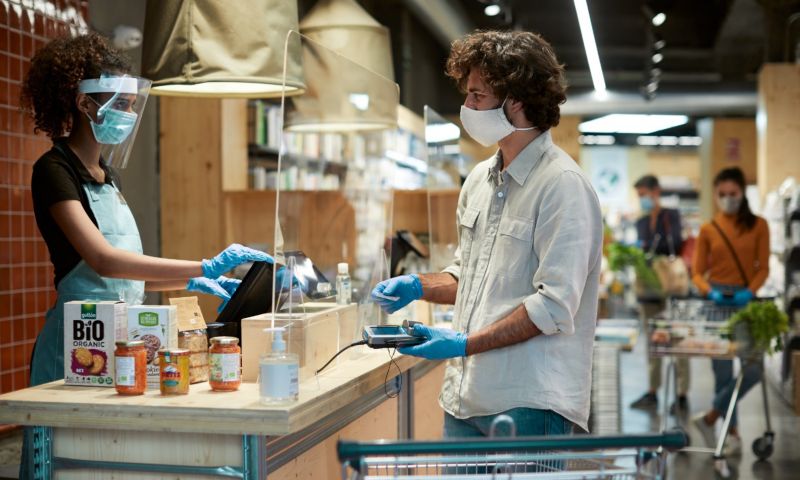.jpg)
Masking up for our health
As we adapt to the physical challenges of wearing a face mask such as fogged-up glasses and muffled speech, psychologists look at the social effect of covering our faces.
Clinical Psychologist and lecturer in Psychology in the School of Health and Biomedical Sciences, Dr James Collett, has more.
"Humans are social animals, and regardless of how much we individually desire social contact, for the most part if we are not feeling socially connected to others in a meaningful way, it decreases our wellbeing and increases our likelihood of stress, depression, and other mental health problems," he said.
“While COVID-19 is already making social connection difficult, face masks could make it a little more complicated because many of us may not realise how much we rely on seeing the face of the person we are communicating with.
“When interacting socially, we use a wide range of facial expressions that are a major source of non-verbal communication, and we associate each one with a different emotion.
“Face perception is so important to us,” he says,“that humans actually have a part of the brain that is associated with recognising fine, expert-level detail, which is known as the fusiform face gyrus, so we come "pre-set" for faces.”
This makes us "experts" from birth at identifying faces and noticing changes in facial expression.
However Collett says now that we’re wearing face coverings in public for health reasons, "it’s going to take away a lot of important facial signalling that we use for interpreting emotional content and underlying meaning in a conversation.
“For example, is a friend being supportive or sarcastic when they talk to you? Is a person at the supermarket smiling or are they annoyed? Is your workmate tired or are they concentrating on what they’re doing?

“In all these situations, it's going to be harder to decipher another person's emotional intent and they yours when wearing a face mask.
To overcome this, Collett’s key message is to take extra care with communication and connection with others by actively reminding ourselves that it's easier to miscommunicate or feel disconnected when wearing a mask.
“It might mean checking in or being more direct when speaking with someone by saying: "I really mean that, please reach out if you're not doing okay", and challenging ourselves on something we might misinterpret by reflecting: "Was that person grumpy when they said hello, or was it just that I couldn't see them smile”?
“We also need to be enjoying unmasked social contact when safe to do so, which at the time of writing is at home if you live with others, and by connecting with others via video chat.
In the longer term, face masks could become part of our way of life when venturing out to public spaces, to help prevent the spread of infection.
“Both individually and at a social level, I think we need to change up our feelings about face masks from something seen as a barrier between ourselves and others, or ourselves and "normal" everyday life, and instead see them as a protective barrier that increases our safety," Collett says.
“Remember, everyone who is out there wearing a mask is doing their bit not just to protect themselves, but to protect the whole community.
“People are on the whole very adaptive and resilient and masks are an important way we can reduce the COVID-19 risk, so I believe we can cope with masks just as we've coped with other challenges in this trying year.”
Story: Diana Robertson
Acknowledgement of Country
RMIT University acknowledges the people of the Woi wurrung and Boon wurrung language groups of the eastern Kulin Nation on whose unceded lands we conduct the business of the University. RMIT University respectfully acknowledges their Ancestors and Elders, past and present. RMIT also acknowledges the Traditional Custodians and their Ancestors of the lands and waters across Australia where we conduct our business - Artwork 'Sentient' by Hollie Johnson, Gunaikurnai and Monero Ngarigo.